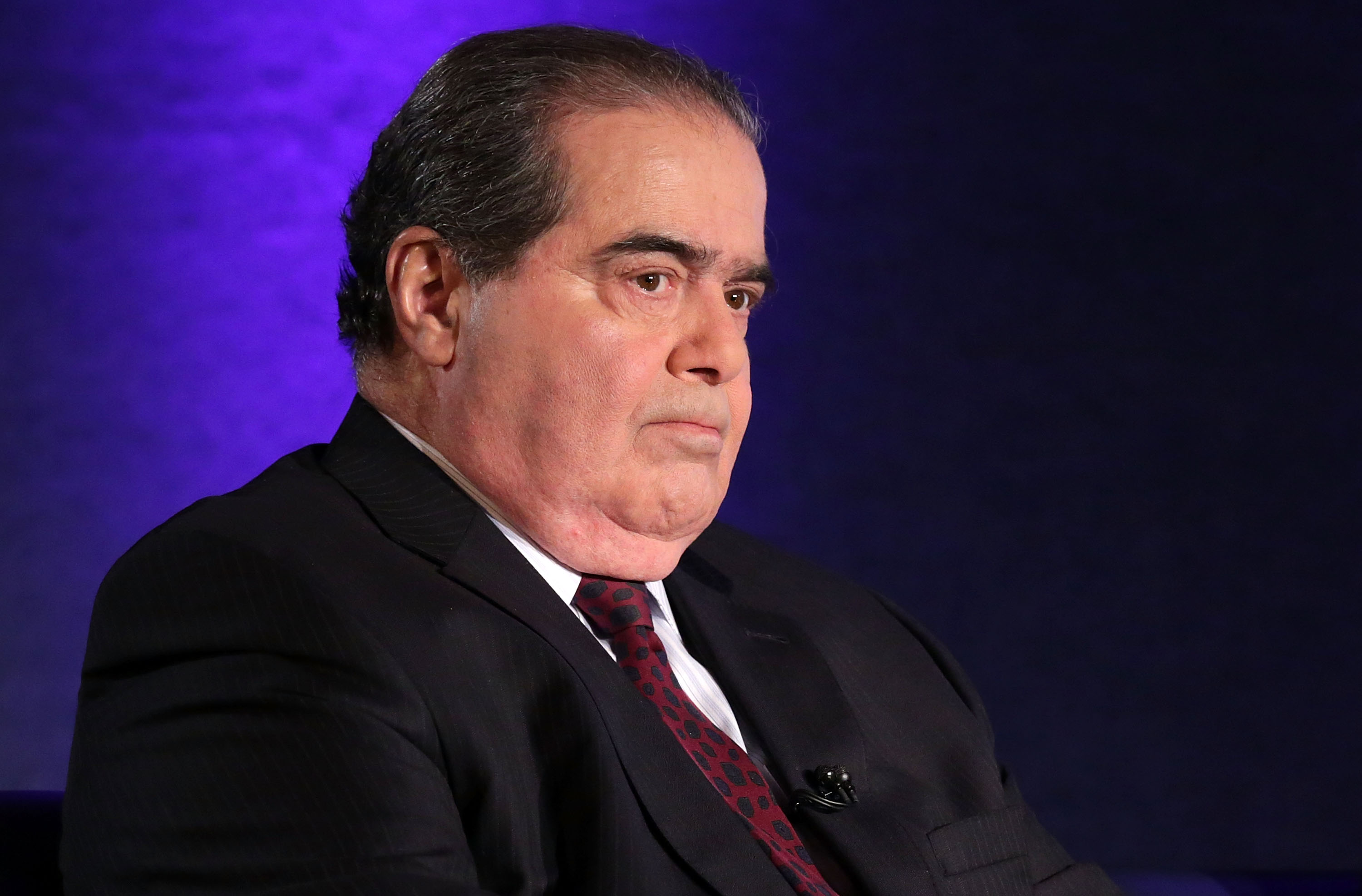ICYMI: That Time Antonin Scalia Suggested That 'Slower-Track Schools' Work Better for Blacks

The Supreme Court is once again debating the constitutionality of affirmative action.
Yesterday (December 9), the justices heard arguments in Fisher v. University of Texas at Austin. Per the state’s “Top Ten Percent Plan,” the University of Texas (UT) automatically admits the students at the top of their class at each of the state’s high schools. When Abigail Fisher applied to UT, 81 percent of the incoming class of 2008 was filled with those students. Many of the remaining slots were filled via what the school calls a holistic review of the applications, which factors in standardized test scores, completed coursework, class rank, application essays, demonstrated leadership, socioeconomic status, race and more. Fisher, a White woman, charged that the university’s inclusion of race in the decision is the reason that she was rejected for a spot in her school of choice. In her view, the practice is a violation of the 14th Amendment.
Fisher first appeared before SCOTUS three years ago, when the justices sent her case back to District Court for the Western District of Texas to examine if the university needed to consider race to create a diverse class of undergraduates. Both it and the U.S. Court of Appeals for the Fifth Circuit found that not only was it legal for the school to include race in the holistic review of applicants, but that it was necessary. Fisher appealed the case back to the Supreme Court.
The more liberal-leaning justices seemed disinclined to side with Fisher, saying that the university’s minimal use of race was a key part of creating an academically beneficial diverse student body.
But the most controversial portion of the argument came during the following exchange between UT’s attorney, Gregory Garre, and Justice Antonin Scalia, pulled from the official transcript:
Garre: If this Court rules that the University of Texas can’t consider race, or if it rules that universities that consider race have to die a death of a thousand cuts for doing so, we know exactly what’s going to happen. Experience tells us that. This happened at the University of Texas after the Hopwood case: Diversity plummeted….
Scalia: There are those who contend that it does not benefit African Americans to get them into the University of Texas where they do not do well, as opposed to having them go to a less advanced school, a slower track school where they do well. One of the briefs pointed out that most of the Black scientists in this country don’t come from schools like the University of Texas. They come from lesser schools where they do not feel that they’re being pushed ahead in classes that are too fast for them. I’m just not impressed by the fact that the University of Texas may have fewer. Maybe it ought to have fewer. And maybe…when you take more, the number of Blacks, really competent Blacks admitted to lesser schools, turns out to be less. And I don’t think it stands to reason that it’s a good thing for the University of Texas to admit as many Blacks as possible.
Garre: This court heard and rejected that argument, with respect, Justice Scalia, in the Grutter case, a case that our opponents have and asked this court to overrule. If you look at the performance of holistic minority admits versus the top 10 percent admits, over time they fare better. And frankly, I don’t think the solution to the problems with student body diversity can be to set up a system in which not only are minorities going to separate schools, they’re going to inferior schools. I think what experience shows, at Texas, California and Michigan, is that now is not the time and this is not the case to roll back student body diversity in America.
Scalia seemed to be pulling his information from amicus briefs filed in support of Fisher: One from UCLA professor Richard Sander on the “mismatch theory” (which says students of color do not perform well when they are admitted via affirmative action programs), and another from Peter S. Kirsanow and Gail Heriot of the U.S. Commission on Civil Rights regarding people of color in STEM fields. But Garre is right—Black students at UT Austin actually graduate at a higher rate than their counterparts at other schools in the UT system. Vox has a detailed breakdown of the perceived fallacies in Scalia’s argument.
The exchange has prompted many to level charges of racism against Scalia.
2015 is exposing the reality that racism exists at the highest levels of American jurisprudence. Scalia is a racist pic.twitter.com/PnM34FGHyh
— Shaun King (@ShaunKing) December 9, 2015
Harry Reid just about straight up called Antonin Scalia a racist https://t.co/weVXQZetEj pic.twitter.com/3qsujMtbwM
— Huffington Post (@HuffingtonPost) December 10, 2015
It is still unclear which way the court will go. Justice Anthony Kennedy will likely be the deciding vote, and his participation in the argument did not reveal much about his views. He did, however, say: “We’re just arguing the same case. It’s as if nothing had happened.”
